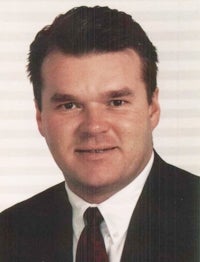When homeowners veer toward foreclosure, as increasing numbers of them have been doing for the past three years, one piece of advice they often get is to take action before things go too far, work with the bank, arrange a short sale.
But local real estate agents say it’s not that simple.
In fact, they say, in some cases it takes six months or more to close on a property with an upside-down mortgage, and the process can be so complicated that real estate agents flee from the deals and sellers might be better served just letting a foreclosure play out.
In short sales, homeowners sell their houses for less than the balance of their mortgages, and the banks that lent them the money take a loss but at least get something back. That creates a different dynamic than in most house sales, according to Dave Stead a Realtor with ReMax First Choice in Northborough.
“[Sellers] are not really concerned with how much they’re going to get, but you have to come up with a price that’s good enough for the lender,” Stead said.
And that can create loads of paperwork. George Russell, of George Russell Realty LLC in Worcester, said banks understandably want to avoid giving an easy out to a homeowner who has put little money down on a mortgage and just wants to get out cheap and move on. If there’s proof of a hardship, like someone in the household losing their job, banks may be more flexible, he said. Russell said that in some cases his firm goes to banks with a package that includes proof of market decline and even crime statistics for the neighborhood. With so much information to sort through, he said, it can be difficult to get a quick answer.
“It’s because the banks are losing money on things,” Russell said, “And they’re not in a hurry to lose money.”
The more parties involved in a transaction, the more complicated it gets. When properties have two mortgages, as with the “80-20” no-money-down packages that proliferated in recent years, both lenders have to sign off. And if there are liens on the property, more parties have to get involved. Stead said he’s seen cases where a first mortgage holder is ready to jump at any offer that gets their loan repaid in full while the second lender holds out for more repayment until the property reaches the edge of foreclosure.
In some cases, Stead said he has refused to work with homeowners interested in a short sale, advising them to let the foreclosure play out. In one instance, he said, a home had a $210,000 mortgage and a $30,000 mortgage, plus two liens.
“There’s just no way you’re going to get those people to walk away with nothing, and the first mortgage holder to even take a hit on it,” he said.
Soon after he turned the owner away, Stead said, he saw that an agent who handles bank-owned properties was listing the house for $179,000.
Jane Fine, of Fine Properties Inc. in Worcester, said even within institutions it’s sometimes impossible to get a straight answer.
“One person may manage bank properties, but he’s not the decision maker,” she said. “There are just so many short sales, and they’re just dumped, and there’s no process for the dumping.”
Stead said banks often assign a negotiator to handle these types of transactions, but with the current state of the market, they are often too overwhelmed to answer queries. He said one negotiator he does business with him often sends him e-mails after 10 p.m.
David Shortsleeve, sales manager with Coldwell Banker Real Estate in Worcester, said part of the problem is that banks have never handled the number of short sales that are in the market these days. But it can make the process difficult.
“After a while buyers just give up on it and move on,” he said.
Big Guys Finish Last
Fine said she sees similar issues come up in transactions with both large national lenders and small community banks, but other Realtors said the problem is more common with the big players. And local bankers said they don’t deal with many short sales or foreclosures since they didn’t participate in most exotic loan schemes.
Kenneth J. Redding, president and CEO of Unibank For Savings in Whitinsville said the bank had only two foreclosures in the past year, and it works hard to get properties back into a homeowner’s hands as quickly as possible.
“We’re very accessible and anxious to work with whoever it is that may have an interest in that,” he said.
At Bank of America, one of the big institutions that does handle lots of foreclosures and short sales, spokesman David Bradley acknowledged that it can be complicated to get all lenders on board with a short sale, but he said the process should typically take 30 to 60 days, not many months.
“I think there could be scenarios where that would happen,” he said. “But I would say that it’s highly unusual.”
Bradley added that the bank makes an average of 17 attempts to reach distressed homeowners and work out a way for them to retain ownership before a property reaches the point of short sale or foreclosure.
Of course, whatever problems short sales present, avoiding foreclosures is a goal that makes sense to almost everyone involved in the real estate market. Houses that stand empty face all kinds of damage from weather and vandalism, and selling them off has its own set of problems.
Still, Russell said, real estate agents operating in Central Massachusetts, and particularly in the City of Worcester, need to be ready to deal with both foreclosures and short sales if they want to make any money.
“Over the last six months I would guess over half of our transactions are bank-owned or almost-bank-owned,” he said.

